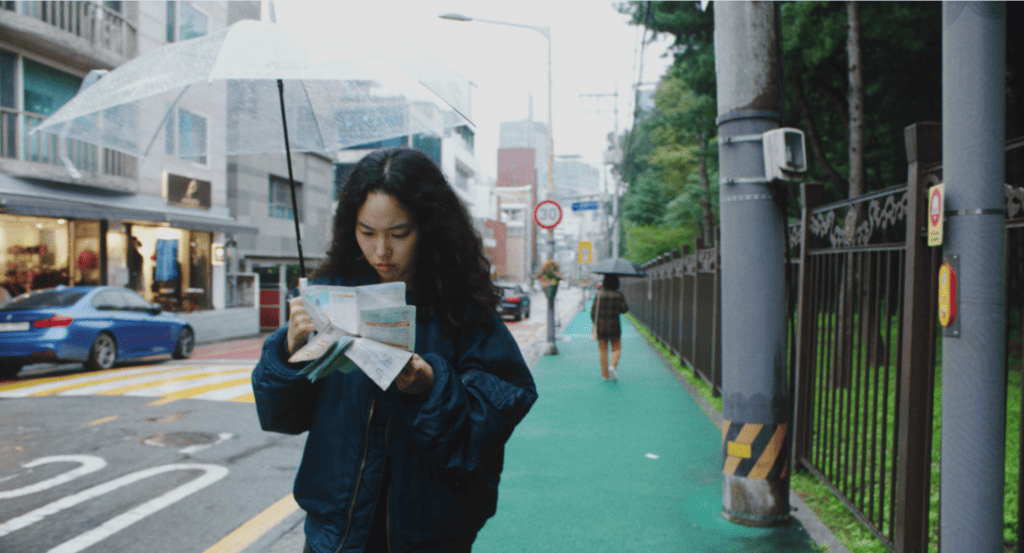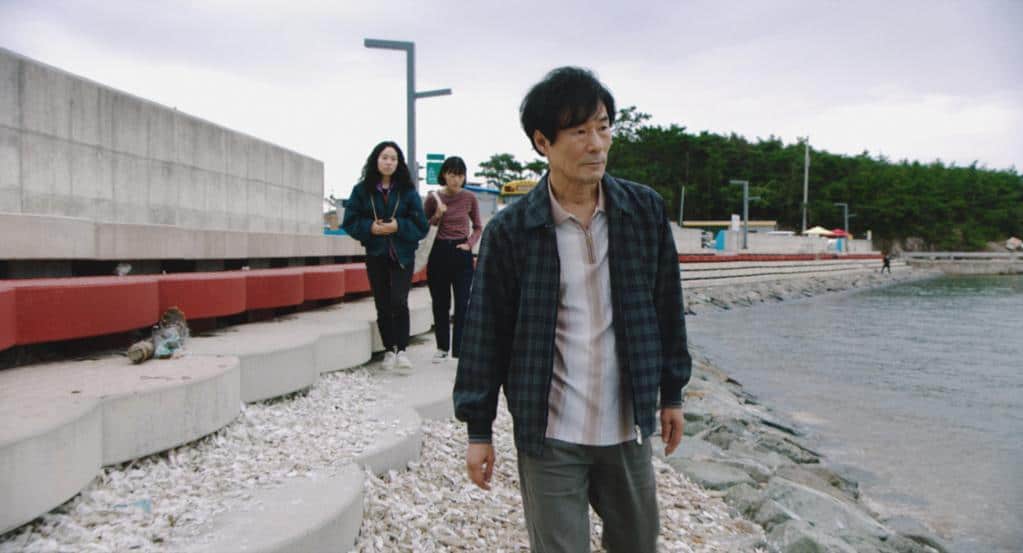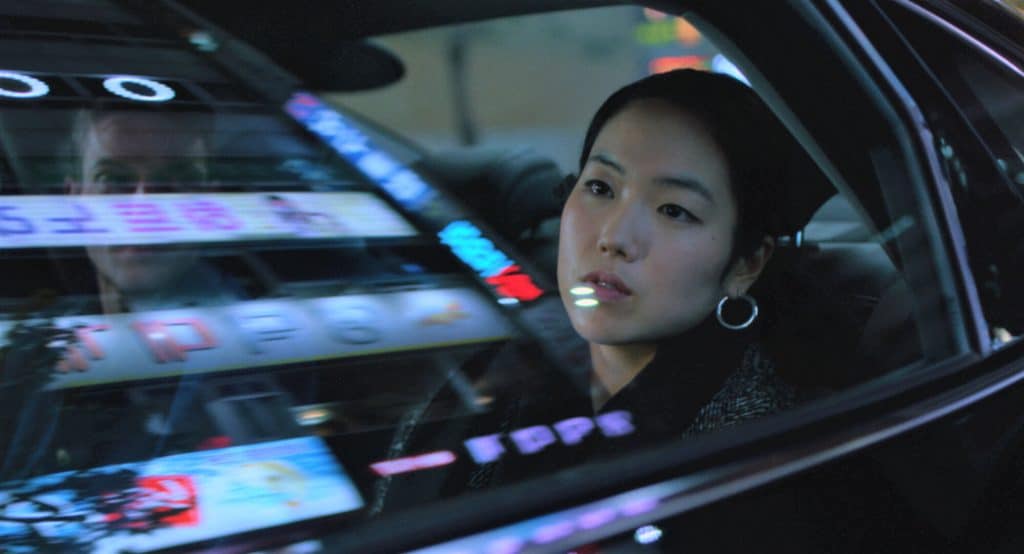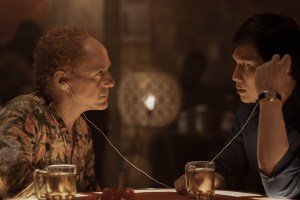Writer-director Davy Chou’s Return to Seoul (2023) follows Frédérique “Freddie” Benoît (Park Ji-Min) during visits to Seoul, South Korea. Adopted from Korea as a baby by French parents, Freddie arrives in her unknown homeland as a 25-year-old. While the trip begins as a meandering discovery tour, her new friend Tena (Guka Han) suggests she visit an adoption agency. That inkling sets Freddie on a quest to reunite with her birth parents. Her mother seems unreachable, but her father (Oh Kwang-Rok) invites her to see him. Separated by language barriers and decades, Freddie’s visit is rocky but enlightening. From there, Return to Seoul traces the next eight years in Freddie’s life through the lens of her disparate visits to Seoul. Each vignette reveals an older Freddie, but one who shares the festered scars of her younger selves.

Return to Seoul opens with a shot of Tena listening to music. Her headphone-adorned head fills the center of the frame. On either side of her head is a different color wallpaper—almost clashing green and pink. Freddie enters the film when she interrupts Tena and asks to hear the music. That action connects them. It is helped by the fact that Tena is one of the few French speakers Freddie will encounter. Beyond rapidly introducing Freddie’s baseline constraints and personality, the opening frame establishes the motif of duality that Chou returns to visually and narratively at every turn. He repeats the image of a head splitting two colors, subbing Freddie for Tena, aesthetically literalizing Freddie’s divided history. The film is built from her various incongruities. South Korean by birth, but French in all actionable ways. Drawn to learn her history, but terrified of what it is. On and on.

Freddie’s personal disjointedness also emboldens Chou’s choice to segment the script as he does. The first trip to Seoul takes up roughly half of Return to Seoul’s runtime. It tracks from both character and narrative perspectives—Freddie’s initial bout of discovery defines every iteration afterward. There is a certain whiplash to Chou’s first time jump, one that takes us from a contentious exchange and a Freddie dead-set on leaving South Korea and never coming back to a Freddie who is working in Seoul. Thematically, the juxtaposition mimics the fitful state of Freddie’s life. Nonetheless, there are enough unanswered questions between those two periods that I found myself distracted. Chou’s story footing after that settles back into a wonderfully syncopated rhythm without major distractions, but that first leap of faith lends the story a momentary mushiness that I cannot help but wish was tighter.

What never falters, no matter the story year or circumstance within it, is Ji-Min’s astounding performance. In her debut role, Ji-Min is tasked with grounding the audience as the chaos of Freddie’s life unspools. Each jump sees her modulate the performance, adjusting to the breadth of off-screen life that Freddie encounters. When we first see her, Ji-Min plays Freddie as a restless wanderer who uses goofiness and cruelty to deflect her soul-deep sadness. Two years later, she is a slicked-back, leather-clad, consultant, the same energy tweaked into a puffed-out badass persona. Onwards Freddie goes, and Ji-Min’s work with it. Maintaining the emotional thread stitched firmly in place on Freddie’s first visit is a tall order and one that Ji-Min finds every possible shade of to flesh this shattered woman out. Chou understands what he has—a multitude of lingering close-ups showcase Ji-Min’s power.
Return to Seoul is, at its heart, a character study couched in the markers of a broader historical backdrop. Freddie’s scenes in the Hammonde adoption agencies touch on the sheer number of Korean children adopted by mostly white European and American families in the aftermath of the war. Beyond those sequences, Chou does not aim his film in a way that looks to posture as a history lesson. Instead, in profound partnership with Ji-Min, distill the ransacking of generations into one woman’s journey to grapple with what it all means. The result is a film without easy or definitive answers that is nonetheless brimming with an aching hope.
Return to Seoul opens in NY and LA on February 17, 2023 courtesy of Sony Pictures Classics. The film will continue to expand in limited release in subsequent weeks.
'Return to Soul' is a kinetic character study featuring a world-class debut performance from Park Ji-Min.
-
GVN Rating 8
-
User Ratings (0 Votes)
0

Devin McGrath-Conwell holds a B.A. in Film / English from Middlebury College and is currently pursuing an MFA in Screenwriting from Emerson College. His obsessions include all things horror, David Lynch, the darkest of satires, and Billy Joel. Devin’s writing has also appeared in publications such as Filmhounds Magazine, Film Cred, Horror Homeroom, and Cinema Scholars.







